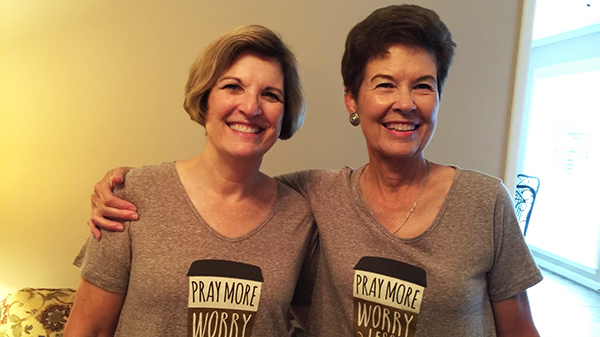Behind every woman’s joy at learning she is pregnant, there is a fear as well — the fear of losing the baby. Most of us have family members or close friends who have experienced miscarriage, which is defined as a pregnancy terminating itself before the 20th week.
An average female has about a 10–25 percent chance of her pregnancy ending in miscarriage, and the older a women is, the greater her risk of miscarriage.
These statistics sound scary to many women and that fear can lead to anxiety. This anxiety is often heightened during the first trimester (13 weeks) of pregnancy because it is during that time that the chances of miscarriage are often highest.
There is very little that women can do to prevent a miscarriage from happening, but when it does, the woman who has miscarried needs the love and support of her family to cope with her loss.
Grieving process
Many people do not realize how common miscarriage is because many women choose not to share their experiences. However, miscarriage is a death, and the baby’s mother, father and family will experience a range of emotions in response to their loss.
There is no right or wrong way to grieve any loss, and miscarriage is no different. Each individual will handle the loss differently and experience a range of emotions throughout the grieving process. Women and men even experience pregnancy loss differently from one another.
If you experience a miscarriage, it is important not to compare your grieving experience to that of others. Allow yourself your own grief and your own timetable to heal.
Do not believe the lie that says your loss is not significant. There was a part of you that you will never know, a life that was never fully developed. It is OK to acknowledge that loss and the amount of pain it brings.
Some women find they want to share their loss with others while some want to grieve privately. Either is an appropriate response. Often a shroud of silence about miscarriage or a feeling that it is a taboo subject can keep women from seeking support. You should never feel like miscarriage is something you cannot talk about with a counselor, pastor or trusted friend. For many women connecting with others who share their experience can help bring healing because it reassures them that they are not alone.
Regardless of how publicly or privately you choose to grieve, you also must take care of yourself physically and emotionally. Physically, your body has been through a very traumatic event. Hormones are elevated and your body had already started gearing up to grow a baby. It will take time for your body to heal.
Eating well, getting plenty of rest and doing simple exercises approved by your doctor can improve your physical health. In turn, these steps will aid in taking care of your emotional needs too.
You also need to allow yourself time to process your loss. Whether you write, talk, pray, meditate on Scripture or use some other means, make sure you carve out the time you need. Don’t shove the emotions of grief aside. As painful as it may be, allow yourself to feel all that you are experiencing.
No one likes feeling disappointed or sad. Many of us have spent a large part of our lives trying to avoid those two feelings. In the wake of a painful loss like miscarriage, we can easily lose heart and look to the future with skepticism and bitterness. But is that really the kind of life we are called to live as followers of Christ? The answer is “no.” Regardless of our circumstances, even our suffering, God is still good. He is truly close to the brokenhearted and helps those who are crushed in spirit (Ps. 34:18).
Whether you are in the journey of grief following a miscarriage or supporting someone through this kind of loss, know that you are not alone. Not only is Christ there to sustain you, to comfort you and to listen to your anger, but fellow believers are out there who have been where you are now. You will not always feel the way you feel right now. Though you will never forget your loss, your feelings will change.
Take care of yourself, reach out for support and allow Christ to envelop you with His love while you cry and grieve.
EDITOR’S NOTE — Lisa Keane is the clinical director for Pathways Professional Counseling, a ministry that helps individuals and families seek solutions to their problems through professional, affordable counseling from a Christian perspective. Pathways is a ministry of Alabama Baptist Children’s Homes & Family Ministries.






Share with others: